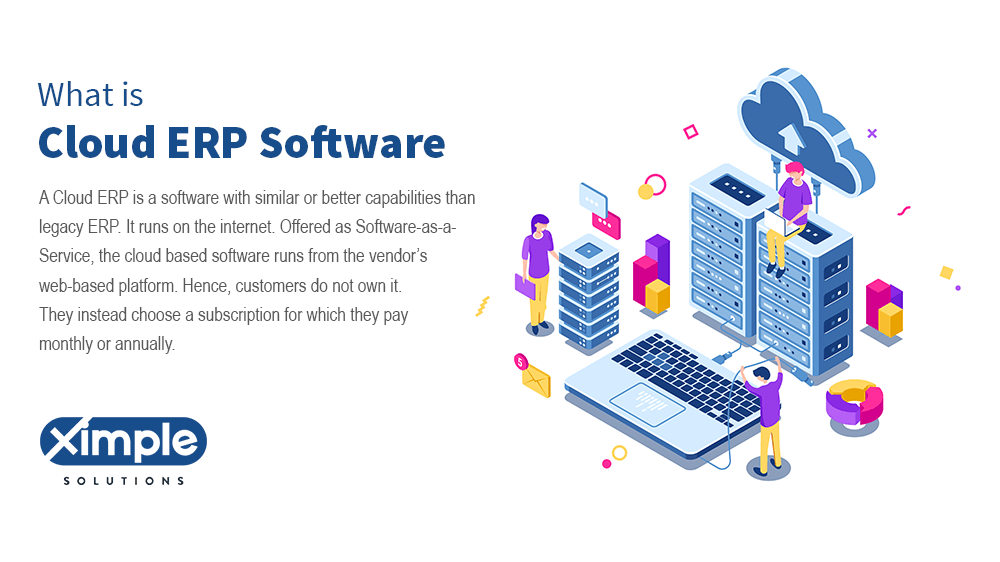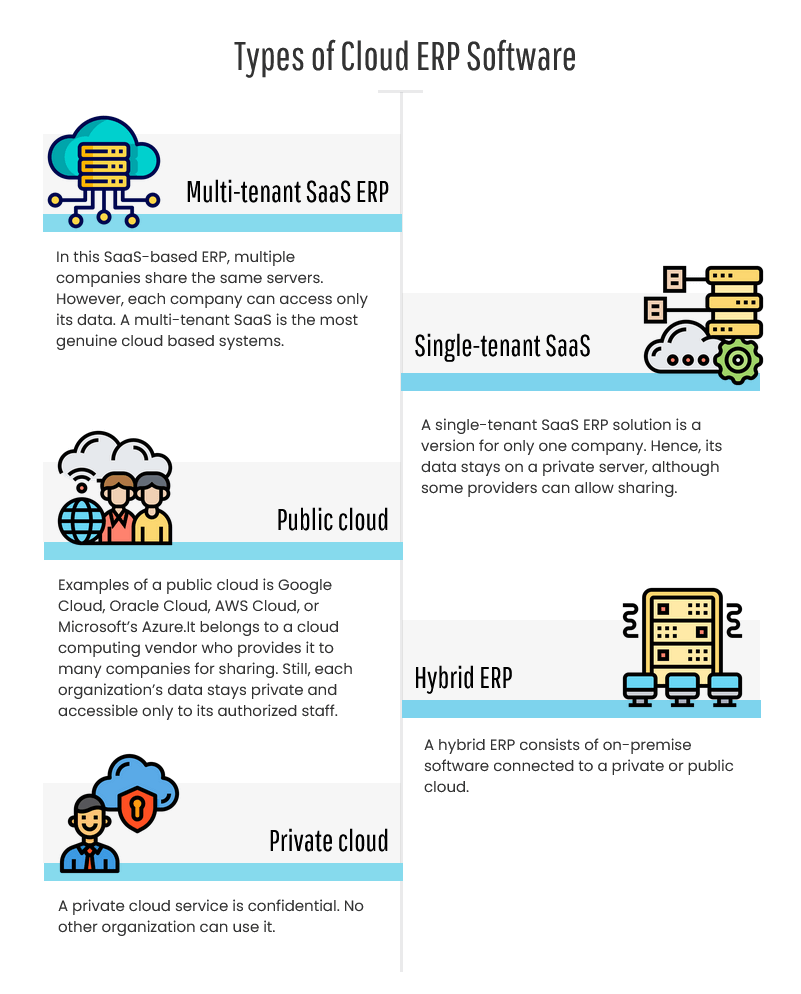
A Cloud ERP is a software with similar or better capabilities than legacy ERP. It runs on the internet. Offered as Software-as-a-Service, the cloud based software runs from the vendor’s web-based platform. Hence, customers do not own it.
They instead choose a subscription for which they pay monthly or annually. For that reason, users of ERP in the cloud do not incur any costs for maintaining or upgrading the software or hardware.
Cloud ERP have a mixture of technologies that connect to speedy internet networks. These solutions stay online throughout, and the vendor updates their security. Customers using sap cloud ERP or any other should only login in and use the data stored in their software. The ERP cost of ownership is small for the customer. Cloud Enterprise Resource Planning software is accessible on desktop PCs and mobile devices. This characteristic makes them more dependable than on premise ERP software because it is only accessible on the company’s in-house servers. Cloud-based ERP solutions entail various functions, including sales histories, customer relations, supply chain, human capital, etc. They are scalable, versatile, profitable, and cost-friendly.
Cloud ERP and ERP provide the same functions. However, the ERP software came ahead of its cloud counterpart and only runs on servers within a business premise. The in-house IT staff manages the on-premise ERP system while the company meets all upfront costs of the software, including licensing fees, maintenance costs, software upgrades, customizations, etc. It is up to the team to secure the software with the antivirus and other security applications and backup server data.
In contrast, the best cloud based enterprise software belongs to a vendor with a cloud computing platform. The vendor runs the software and incurs the maintenance and upgrading costs and the underlying costs of running a land-based data center.
In all, we can say that the difference between ERP and cloud-based ERP is the location of the software and the entity that manages it.
Understanding the basic cloud ERP concepts is essential. These concepts are the key terminologies you will encounter when researching enterprise resource planning software. They include the following:
Whether you want to buy the Ximple cloud ERP for Distributors or others, you must select one type. Cloud systems are not equal. That is why you need to be aware of what you choose eventually. The types include:

Read full article: Types of Cloud ERP
Cloud ERP benefits are the reason many small and medium-sized businesses want to acquire it. They include the following:
Is a cloud-based ERP system free from challenges? No, like legacy ERP, the cloud system has its challenges. These challenges entail the following:
 Cloud ERP FAQ
Cloud ERP FAQWhen comparing cloud vs. on-premise ERP, you will notice that the former is better off. First, it is a web-based solution, while the legacy one is in-house software. Being on the internet makes the cloud ERP for dummies more compatible with mobile devices and desktop computers.
Thus, it is ideal for your remote and office workers. Also, the top cloud ERP has the same functions as on-premise ERP, but it is easier to customize and extend. Above all, the cloud-based software is cheaper because the vendor bears the cost burden.
Yes, cloud ERP is Software as a Service. Hence, the ERP vendor stores it on their cloud computing servers. They are responsible for software and hardware management.
Cloud computing refers to internet-based infrastructures through which computers intellect with data. The three types of cloud computing include IaaS, PaaS, and SaaS. Any of these can be a mode of ERP delivery.
It can be SaaS or PaaS. The choice between these two is with your company. If the goal is to get a highly scalable system your IT workers can customize and expand, PaaS is the best.
PaaS requires professional coders who can create middleware and other applications. SaaS is the best selection if you want the best cloud ERP for medium-sized businesses without the need to manage it yourself.
This term covers internet-hosted services, and people often ask: “what is cloud based ERP systems?â€.
The future of cloud based system rests on Artificial Intelligence, Remote Collaboration, Machine Learning, Robotics Process…
Running outdated, inefficient, insecure, and expensive legacy systems is unnecessary. Companies can shift their applications…